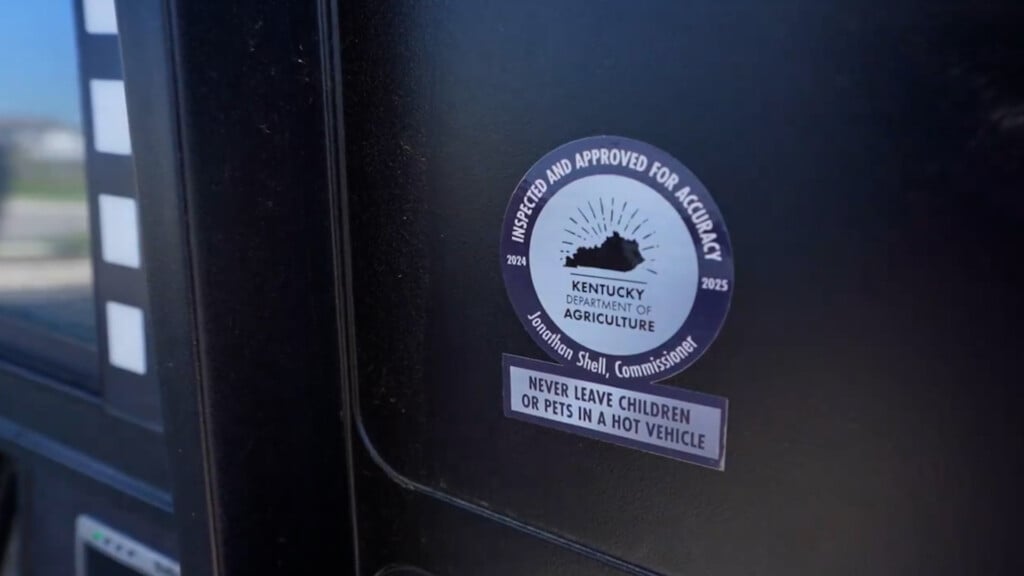Scholars talk critical race theory and proposed Bill 69 in Kentucky schools
BOWLING GREEN, Ky. – Last week at the Warren County School board meeting, community members voiced their opinions about the idea of teaching critical race theory in public schools.
Some of the community members made comments including:
“When we start teaching critical race theory and things like that, I believe it’s segregating our kids. I believe it is teaching them that the color of their skin is something that should divide them,” said one man.
“I’m very concerned with the direction being taken in education today. The school systems seem to be moving in a direction of more of indoctrination than education,” said another man.
One commenter said, “I think it starts to ruin, you know, everything that we have done over the past 150 years.”
“CRT, critical race theory, [and] other Marxist ideology [have] infiltrated some of the school systems,” one man expressed.
A state representive has pre-filed legislation, Bill Request 69, which proposes that teachers from kindergarten through higher education levels would not be able to teach about topics related to race, sex and religion. Though this bill does not specifically call out the critical race theory, the bill targets this theory as well as other subject matter currently taught at the postgraduate level.
The critical race theory is more than 40 years old. It is a theory made up of two separate parts – first, CRT theorists believe race and white privilege is a social construct that benefits white people while disserving marginalized groups.
The second part of the theory says that racism and racially motivated outcomes, for example higher arrests in African-American men, lower income in African-American schools or harsher punishments for crack cocaine versus powder cocaine are all results of institutional, systemic racism that still exists today.
CRT theorists say that racism is systemically formed in American institutions rather than motivated by racist individuals, overall. The theory says systemic racism can be found in the past as well as today’s laws.
Currently, the Critical Race Theory curriculum is not taught in Kentucky K-12 schools.
Warren County Board of Education Superintendent Rob Clayton was at the school board meeting last week addressing those complaints by people who were speculating the theory could enter the Warren County School Systems.
At the meeting, he said, “We are experts in teaching our students and having discussions with our students about controversial topics. That’s not new to K-12 education, though it may appear that way, because again media drives a lot of that narrative.”
Clayton said that people lack an understanding of exactly what CRT is.
“Many of those comments were based off of false information,” he said.
Though he says it’s too soon to make speculations about CRT taught in the classroom, Clayton fears that if the proposed Bill Request 69makes it into law, it would create censorship.
“This bill in Frankfort that’s been contemplated, deals with really censoring what can or cannot be shared in the classroom. That’s not something that I as a superintendent am supportive of. Again, provided that the discussion is developmentally appropriate and does fit within not only the scope of the curriculum, but also some of the social, emotional needs of our students,” said Clayton.
Western Kentucky University professor Dr. Saundra Ardrey agreed with Clayton, and said that many people have misinformed opinions about CRT.
“They don’t understand the theory and what it means. It has been used as a political football to cause division, or to continue divisions. And, all this theory is saying, is let’s at least recognize and study that gender may have an impact, race may have an impact. You may come to the conclusion that it does not, but how do you know for sure if we’re not talking about it. What are we afraid of?”
Ardrey said that CRT has implications today, because, “decisions and some of the policies that have been made in the past still influence us today. We don’t have Jim Crow laws that say there is segregation, that there should be a separation of the races, that we’re going to treat one versus the other a different way, but the consequences of those laws, we still have in present day time. And so, critical race theory allows us to understand some of the laws, some of the behavior, some of the inequalities between the races. It allows us to understand why those exist.”
Ardrey went on to name common practices that she believes are results of systemic racism. She says that black men being incarcerated more than white men, lower pay for African Americans versus white U.S. citizens, segregated neighborhoods, unequal housing are all examples.
Ardrey said systemic racism is not a practice of only the past but remains in the present as well.
“We discipline black children differently then we discipline white children. Here in Kentucky, the statistic show us that a black child is more readily put into detention, or into the special needs classes that often it lead them to drop out of school, or two be incarcerated into that pipeline.
“The per capita income for blacks is 44% less than it is for whites. What is the motivation for black lives matter? Why did that police officer act in that way? Why are people of color arrested more for certain crimes. That sort of thing. So, it allows a sort of understanding for that for black children as well as white children. We are doing a disservice to our children, to the future generation that they don’t understand the continuing inequities in our society. And where they come from. And when you don’t understand the past, you’re doomed to repeat it,” she said.



